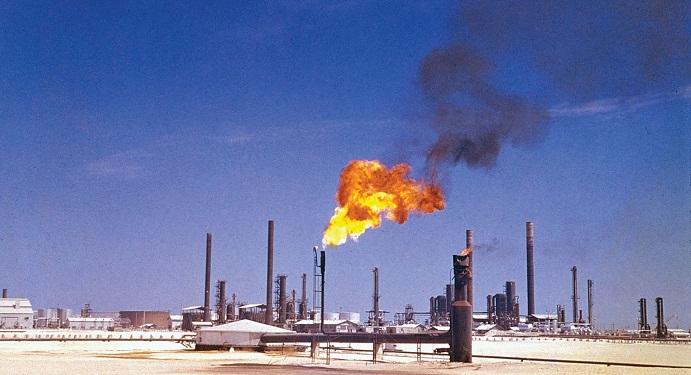For decades the crude cartel has issued an output quota after its production meetings for its 12 member countries to adhere to.
Its failure to nominate a target at Friday`s meeting caused prices to plummet again overnight on Monday, with West Texas Intermediate down nearly 6 per cent to $US37.65 a barrel and Brent crude also falling sharply, to $US40.72 a barrel.
The market remains concerned that Saudi Arabia and the other OPEC members will accept a lower crude price to defend their market share. OPEC member countries pump 31 million barrels of crude a day, meeting about a third of total global demand of more than 90 million barrels a day.
But a Saudi powerbroker told Fairfax Media the decision to ditch a formal target was a long overdue move on OPEC`s behalf and should not come as a surprise to the market.
Makes a lot of sense
"The move makes a lot of sense because if you are trying to capture market share, and you are the lowest-cost producer, why would you put a ceiling on your production?" said Sadad Al-Husseini, a former executive with Saudi Arabia`s state-run oil company who now acts as energy adviser to the royal family-controlled King Faisal Foundation.
"And if you have newcomers who want to add capacity – that is Iran and Iraq – why would you want a ceiling? It never made any sense to me. Try to roll back production from a country like Saudi Arabia, which the whole world depends on, just doesn`t make sense."
Dr Al-Husseini, speaking from the oil-rich city of Dhahran, said the Saudi policy of retaining market share would prove the right strategy. He tips crude prices will recover, as unconventional supplies from North America drop, to trade between $US60 and $US80 a barrel in 2016.
"The leadership of OPEC under the current Saudi-Kuwaiti-Emirati guidance has been very efficient," he said. "Look at what they have done to the flooding of markets that was going to happen. We`ve seen $US200 billion ($273.7 billion) of projects delayed and high-cost production around the world has been shelved. So that`s a great success and if they hadn`t been following this strategy they would have been subsidising very high-cost competing supply, which would have just compounded the issue and brought prices down anyway."
The non-decision by OPEC on Friday has left the market in confusion as analysts seek to read the Saudi strategy and its implications for prices. RBC Capital Markets analyst Ben Wilson described the market as "in limbo".
Exactly as expected
But Fereidun Fesharaki, the Singapore-based founder of consultancy FGE, said the lack of action by OPEC to cap production was exactly as he expected. He said Saudi Arabia wanted Russia to cut output and Iran accept a production cap, as well as a significant decline in US production, before it reined in its own output.
"People are blaming the Saudis for the lower prices, so the Saudis said, `I will cut if you guarantee you will cut`, knowing it will not work but diverting blame to others," Dr Fesharaki said. "The result is exactly the same."
FGE is expecting Brent oil to reach a low in the June quarter next year, heading towards about $US35 a barrel. Dr Fesharaki said he put only a 20 per cent chance on FGE`s "palace coup" scenario, where a revolt within the Saudi royal family triggered a U-turn in the kingdom`s policy on oil production and therefore in OPEC policy.
Dr Al-Husseini dismissed talk of fresh unrest in the royal family and said the government in Riyadh remained stable.
Consultancy IHS Energy said the Saudi policy only underlined the kingdom`s commitment to prioritise market share over price. It said the policy was an inversion of the strategy pursued by OPEC for more than 30 years, because it is based on the belief that the most efficient or lowest-cost producers should produce at whatever level they can and want, leaving higher-cost producers to meet the remainder of demand.
IHS said that while Saudi oil policy could change if that were deemed necessary to address larger domestic or geopolitical considerations, there was no indication that a U-turn was under consideration. That means that none of the world`s top three oil producers – the US, Russia and Saudi Arabia – are willing to cut output voluntarily to support prices.
More about:
















































